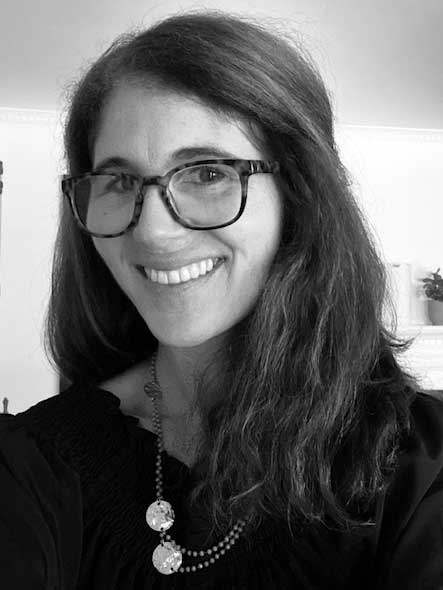Undergraduate Courses 2024-2025
Psychology
The Power and Meanings of Play in Children’s Lives
Intermediate/Advanced, Seminar—Fall
PSYC 3664
Prerequisite: prior college-level course in psychology
Play provides us with an amazing and informative lens for observing the development and complex inner lives of young children. Yet, play is being threatened by increasing amounts of time spent on technology and a growing societal focus on scheduled activities and academic goals. This course will offer an introduction to the many fascinating aspects of play, including the importance of unstructured free play, how play shapes the brain, sensory processing and self-regulation in play, outdoor play, cultural contexts of play, and humor development in play. Through readings, video illustrations, and discussion of student fieldwork at the Early Childhood Center, we will explore the many ways in which play contributes to the complex social, cognitive, emotional, and imaginative lives of children. This course will provide a foundation for the spring course, Early Intervention Approaches for Young Children and Families.
Faculty
Graduate Courses 2024-2025
MA Child Development
Early Therapeutic Approaches for Young Children and Families
Graduate Seminar—Spring
PSYC 7220
This course will explore several early-intervention approaches for young children and their families, with a particular emphasis on the theory and technique of play therapy. While this course will focus most on child-centered play therapy (CCPT), we will also look at the methodology of other types of approaches and how those approaches address treatment issues. In addition, course material will highlight cultural considerations, therapeutic work with parents/caregivers, challenges in treatment, self-reflection, self-regulation, sensory processing, interoception, and analysis of case studies. Readings, class discussions, group play-based activities, and video illustrations will provide students with both a theoretical and an introductory clinical basis for play-based therapeutic work with young children in early-intervention approaches.
Faculty
The Power and Meanings of Play in Children’s Lives
Graduate Seminar—Fall
7162
Play provides us with an amazing and informative lens for observing the development and complex inner lives of young children. Yet, play is being threatened by increasing amounts of time spent on technology and a growing societal focus on scheduled activities and academic goals. This course will offer an introduction to the many fascinating aspects of play, including the importance of unstructured free play, how play shapes the brain, sensory processing and self-regulation in play, outdoor play, cultural contexts of play, and humor development in play. Through readings, video illustrations, and discussion of student fieldwork at the Early Childhood Center, we will explore the many ways that play contributes to the complex social, cognitive, emotional, and imaginative lives of children. This course will provide a foundation for PSYC-7220, Early Intervention Approaches for Young Children and Families. Fieldwork at the Early Childhood Center is required for this course.
Faculty
MSEd Art of Teaching
Early Intervention Approaches for Young Children and Families
Graduate Seminar—Spring
7220
This small seminar will explore several early-intervention approaches for young children and their families, with a particular emphasis on the theory and technique of play therapy. While this course will focus mostly on child-centered play therapy (CCPT), we will also look at the methodology of other types of approaches, such as cognitive behavioral therapy and DIR/Floortime. In addition, course material will highlight cultural considerations, therapeutic work with parents and caregivers, challenges in therapeutic treatment, self-reflection, self-regulation, and interoception. Readings, class discussions, group play-based activities, and video illustrations will provide students with both a theoretical and introductory clinical basis for play-based therapeutic work with young children in early intervention.
Faculty
Previous Courses
Psychology
The Power and Meanings of Play in Children’s Lives
Intermediate, Seminar—Fall
Prerequisite: previous college-level course in psychology or a related discipline
Play provides us with an amazing and informative lens for observing the development and complex inner lives of young children. Yet, play is being threatened by increasing amounts of time spent on technology and a growing societal focus on scheduled activities and academic goals. This course will offer an introduction to the many fascinating aspects of play, including the importance of unstructured free play, how play shapes the brain, sensory processing and self-regulation in play, outdoor play, cultural contexts of play, and humor development in play. Through readings, video illustrations, and discussion of student fieldwork at the Early Childhood Center, we will explore the many ways in which play contributes to the complex social, cognitive, emotional, and imaginative lives of children. This course will provide a foundation for the spring course, Early Intervention Approaches for Young Children and Families.
Faculty
MA Child Development
Early Intervention Approaches for Young Children and Their Families
Graduate Seminar—Spring
This small seminar will explore several early-intervention approaches for young children and their families, with a particular emphasis on the theory and technique of play therapy. While this course will focus mostly on child-centered play therapy (CCPT), we will also look at the methodology of other types of approaches, such as cognitive behavioral therapy and DIR/Floortime. In addition, course material will highlight cultural considerations, therapeutic work with parents and caregivers, challenges in therapeutic treatment, self-reflection, self-regulation, and interoception. Readings, class discussions, group play-based activities, and video illustrations will provide students with both a theoretical and introductory clinical basis for play-based therapeutic work with young children in early intervention.
Faculty
Early Intervention Approaches for Young Children and Their Families Cynthia Puccio
Graduate Seminar—Spring
This course will explore several early-intervention approaches for young children and their families, with a particular emphasis on the theory and technique of play therapy. While this course will focus most on child-centered play therapy (CCPT), we will also look at the methodology of other types of approaches and how those approaches address treatment issues. In addition, course material will highlight cultural considerations, therapeutic work with parents/caregivers, challenges in treatment, self-reflection, self-regulation, sensory processing, interoception, and analysis of case studies. Readings, class discussions, group play-based activities, and video illustrations will provide students with both a theoretical and an introductory clinical basis for play-based therapeutic work with young children in early-intervention approaches.
